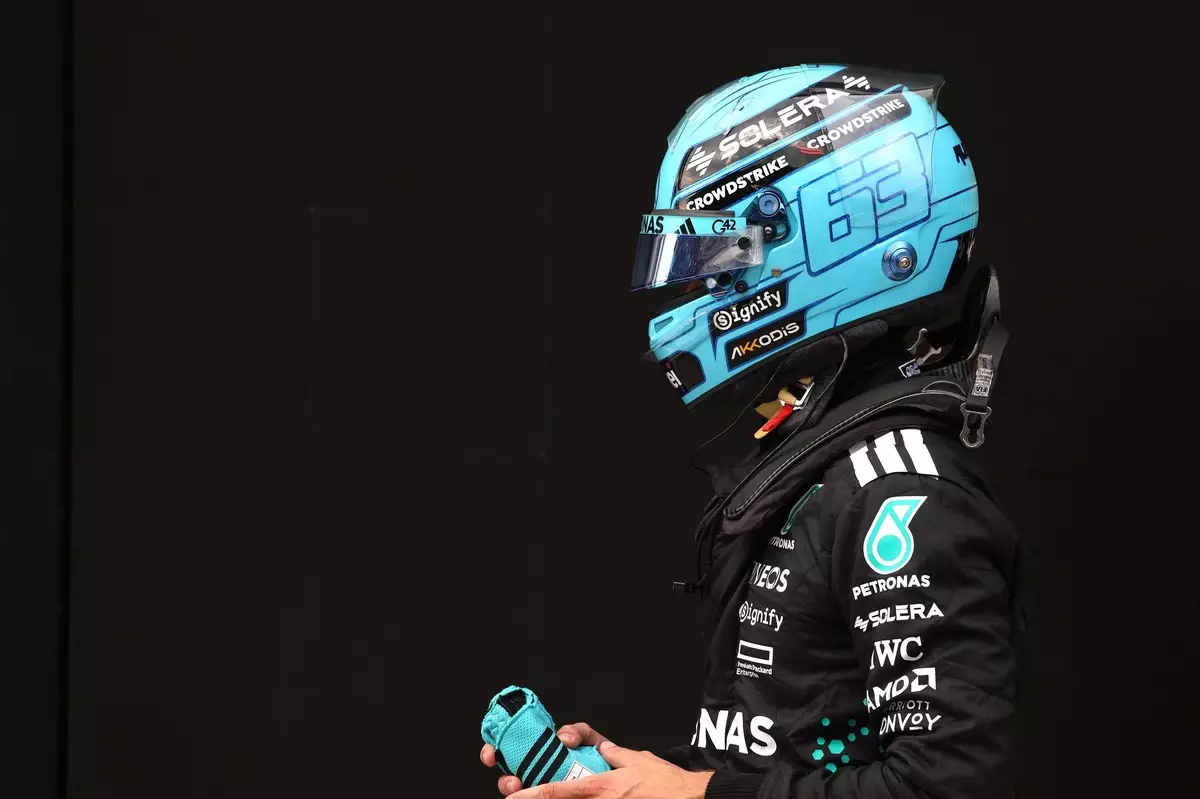In the high-octane world of Formula 1, where adrenaline, speed, and relentless ambition define the sport, George Russell’s decision to delay signing his contract extension stands out as a masterclass in strategic patience. While many drivers and teams rush to finalize deals during the summer lull, Russell’s measured approach underscores a profound understanding of the bigger picture. Instead of succumbing to external pressure or the temptation of quick guarantees, he embodies a nuanced confidence that bold negotiation often starts with restraint.
Opting not to rush the process reveals a level of introspection and self-awareness that is rare among young athletes aiming for long-term success. Russell’s stance is not about doubt or distrust in Mercedes but about ensuring that each piece of the contractual puzzle aligns perfectly with his aspirations, especially amid uncertain regulation changes on the horizon. His approach suggests that he recognizes the importance of timing—trusting that a deal reached when both parties are fully prepared will be far more valuable than one hastily inked under duress.
This patience also signals a shift in how athletes in high-performance sports view contract negotiations. Instead of viewing contracts as mere formalities, drivers like Russell see them as an opportunity to forge a partnership rooted in mutual respect and strategic foresight. This stance challenges the traditional narrative of immediate deal-making, emphasizing that sometimes, “waiting it out” is a show of strength rather than indecision.
The Strategic Insight Behind Russell’s Confidence
Russell’s refusal to sign prematurely should not be mistaken for complacency; rather, it is rooted in a strategic understanding of the F1 landscape. With the 2026 regulations and the evolving pecking order still shrouded in uncertainty, he recognizes that his value and leverage are highest when the future of the sport becomes clearer. Rushing into an agreement now could potentially limit his negotiating power when the rules and competitive hierarchy are more defined.
Moreover, Russell’s current performance reinforces his standing within Mercedes. His fourth-place ranking, race wins, and consistent performances demonstrate that he is not just a promising talent but a proven asset capable of contributing significantly to the team’s future. Mercedes’ leadership, including Toto Wolff, openly reflects this confidence, emphasizing that Russell’s progression is aligned with the team’s ambitions. The statement that “George has always had good cards” underlines a shared understanding: patience today could translate into even greater rewards tomorrow.
This approach challenges the often singular focus on immediate contractual rewards. Russell’s emphasis on “building a relationship” and “getting it right” suggests he values long-term stability over short-term gains. He understands that a well-negotiated contract today can set the foundation for sustained success, providing him with the necessary freedom and security to chase championships without feeling squeezed by contractual constraints.
Balancing Ambition with Strategic Diplomacy
The British driver’s stance also highlights a broader theme in elite sports—balancing fierce ambition with diplomatic restraint. Russell’s unwavering confidence should not be misinterpreted as arrogance but as a calculated move to position himself optimally. In an environment as competitive and dynamic as F1, maintaining composure and clarity can be the difference between securing a marginal advantage and making costly missteps.
His future with Mercedes remains promising, supported by the team’s regard for his talent and trajectory. However, by choosing to delay signing, Russell sends a message that he is not willing to accept a deal that does not reflect his value or adequately address the evolving landscape of Formula 1. This attitude can inspire other drivers and athletes to adopt a more strategic approach—recognizing the power of patience, timing, and long-term vision over impulsive decisions.
Moreover, Russell’s stance underscores a critical insight: in top-tier sports, success is often dictated by a combination of talent, timing, and negotiation finesse. His calculated calm during this contract phase illustrates that genuine confidence isn’t about rushing to the finish line but about knowing when to take the decisive step forward—when the moment is right, and conditions are optimal.
In essence, George Russell’s measured approach exemplifies a profound understanding of both personal growth and the strategic landscape of Formula 1. His patience embodies a forward-thinking mindset that prioritizes quality over haste, a trait that will serve him well in the demanding world of motorsport. As he prepares for the second half of a strong season, his mastery of timing and negotiation shines as a testament to the art of patience in pursuit of greatness.


Leave a Reply